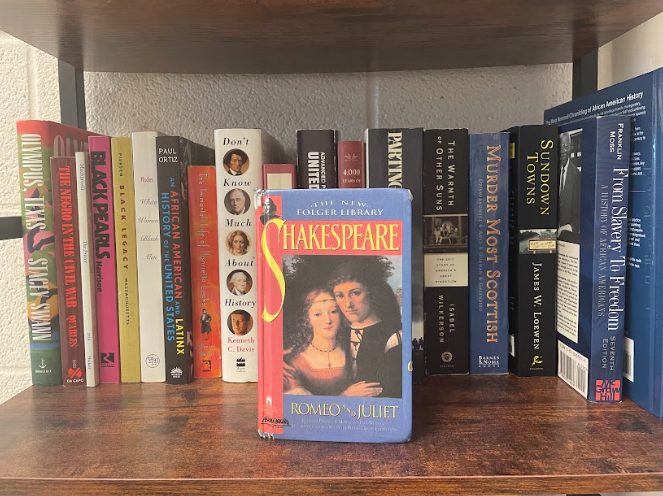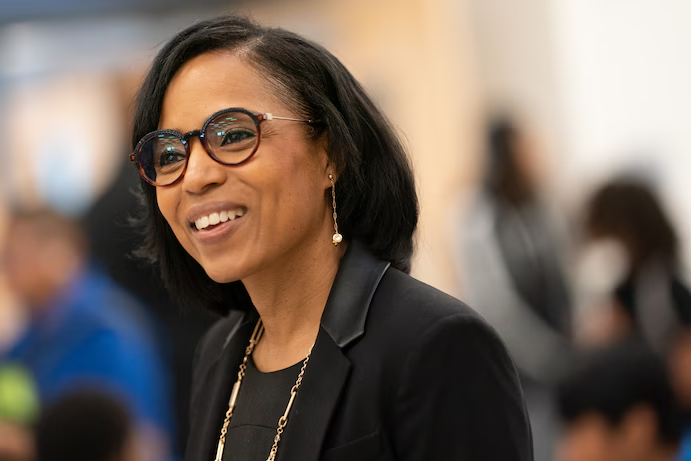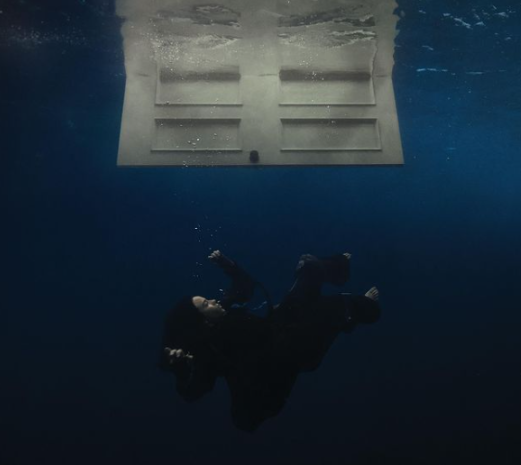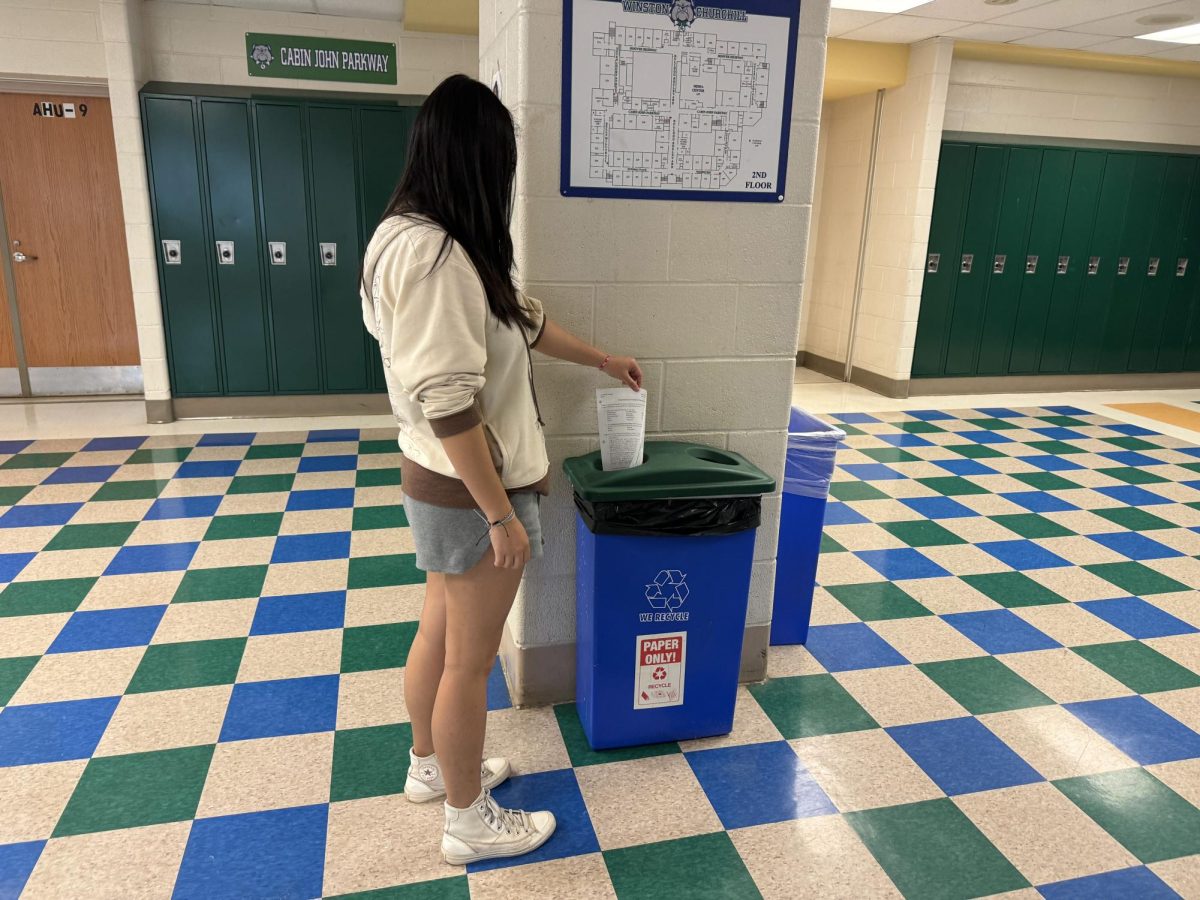This year, the CHS Model United Nations club won more awards than ever. Six CHS students were presented with the highest honors the conference has to offer; one student even received the Best Delegate award. The CHS delegates guide hypothetical policy with an iron fist.
Every year, CHS’ Model UN club attends the North American Invitation Model United Nations (NAIMUN) Conference in downtown DC. The conference, which is run by Georgetown University students, takes place during a weekend in the middle of February and attracts more than 2,000 students from across the globe. Each year students are assigned various issues, such as environment and economy that parallel real UN issues. They are then tasked with creating policies to resolve the problems. Most policy creation takes place in committees with meetings of up to three hours that simulate United Nations debate.
“It is a very fun weekend where you get to go to seminars and make friends with other students,” said sophomore and first-time participant Meredith Srour.
Although Model UN at CHS is known for hard work and acclaim, the conference in DC also has the reputation of being a weekend away from parents, during which a small—but to some, hardly negligible portion of the club partakes in underage drinking, smoking and partying.
“I wouldn’t want to apply because it seems like the only reason people go is to do inappropriate stuff,” said freshman Lauren Matcha. “I heard that a lot of students were doing drugs, participating in underage drinking, and sneaking around into each other’s rooms at night. Students go with no actual purpose, and then other students lose respect for them and the club.”
But which parts of this reputation are fact and which are fiction?
The problem does not lie in what students do during committee, but in what they do during the long stretches of free time between and after these grueling sessions. Students have the option to go out for food in downtown DC or simply spend time in their hotel rooms with their friends. Many students do not abuse these opportunities, but when some do, the trouble begins.
“A lot of the people we take are overwhelmed by the independence they get when they’re here,” CHS club officer senior Hope Kean said. “They’re on their own, getting their own meals, getting up on their own, getting themselves to committee, preparing themselves and researching alone. They feel like they can do whatever they want. Some of them end up making bad decisions.”
This independence leads a few students to act in the ways they believe college students act.
According to upperclassman Chris, who asked that his name be changed because of the sensitive nature of the topic, students either bring bottles of alcohol from home or buy liquor from one of the two liquor stores located within two blocks of the hotel. Some students also bring “vapes,” electronic inhalers that can be used to smoke marijuana without creating any odor, because they are “easier to blow out the window” and “to hide.”
Students either partake in these activities inside of each other’s rooms or go to D.C. establishments to do so.
“Some people go to hookah bars downtown,” said upperclassman Patricia, who asked that her real name not be used.
These activities do not just occur after committee end for the day.
According to Matthew, who asked that his name be changed, he knows a couple of students who drink prior to committee sessions in order to loosen up.
“The drinking helps in committee,” Lorenzo said. “It gives you the confidence to speak. There’s no point in going to committee, paying $375, to not participate. If alcohol gives you the confidence to speak and participate, then I don’t see it as partying so much as immersing yourself in the Model UN world.”
Although it seems like a large portion of Model UN students participate in these activities, accounts of this behavior may be exaggerated in the rumor mill.
“It’s a very small percentage of students that would even try to break the rules,” said club sponsor, field trip chaperone and social studies teacher Paul Jacobson.
According to Jacobson, security measures are in place to ensure that students who are admitted into the club are serious about the conference itself. During the application process, officers do not generally accept juniors and seniors who have not participated in the conference before.
“That’s a red flag,” Jacobson said. “We want people to be doing it all four years. Why would they suddenly do it senior year if not to party?”
At the conference, Jacobson and the teacher chaperones do check-ins at midnight every night, coming to students’ doors in order to ensure that all students are in the proper rooms. The teachers are also allowed to do spontaneous room checks if they see fit, although they usually do not.
However, next year, Jacobson plans to strengthen security significantly. The adults on the trip will be more vigilant in detecting suspicious behavior during next year’s trip, which Jacobson plans to continue.
“I’m going to monitor them more,” Jacobson said. “There will possibly be more chaperones and increased monitoring in the hallways.”
Returning students might also find a few changes in the application process. A new set of officers will be in charge of selecting students next year, and they don’t plan on letting students in without proof of dedication.
“The application process will be very rigorous and limited in number,” said junior and future officer Katie Kidney.
But what more can be done? The students themselves need to come up with ways to reverse the precedent of Model UN being an opportunity to go wild. The duty falls on their shoulders to refocus Model UN on the program, not the parties.
“If we treated the competition itself as more of a competition, like a sport, I know that a lot of students wouldn’t partake in these activities, because they would be so focused on doing well,” Kean said. “It’s like athletes who don’t do drugs because they want to do well. If we made this a more competitive atmosphere, it would encourage people to take the competition more seriously and not see it as a vacation.”
In order to weed out students who are not in it for the love of the academics, Kean proposes that the club be more time-consuming. Students who are not truly serious would be deterred by the intensified preparation.
“That goes with focusing more on the preparation, preparing the position papers and doing more research on your topic,” Kean said. “Right now, I think that the delegates from our school are not fully invested in the club. If they invested more time, work and research, it makes it so that there’s more at stake.”
According to junior club member Isabel Mangan, she was disheartened to find that people at the NAIMUN conference thought less of her because she came from CHS.
“If you say you’re from CHS, people say, ‘Oh, so you’re not here to actually participate?’” Mangan said. “In committee, people are less likely to talk to you when they’re making working papers because they think you probably don’t know what you’re talking about.”
In order to reverse this reputation, Mangan also proposes increased preparation in school and more help from experienced officers on position papers.
According to Kidney, CHS’ reputation for apathy is unfair because most of the students actually put in a lot of effort.
“It’s a really great experience because it shows you what diplomacy is like while having fun,” Kidney said. “I just wish that all students had taken advantage of such a cool opportunity.”
Jacobson is optimistic that this year’s events will serve as a message to CHS participants that their mindsets must be changed.
“It does ruin the conference when students act like this, and it also makes the school look bad,” Jacobson said. “But hopefully we’ve learned some lessons and can take this as a wake-up call.”
Some are wondering about the future of CHS’ Model UN but students may rest assured knowing that Model UN will continue to be a club at CHS.
“It will definitely continue,” Principal Joan Benz said. “It’s very valuable to kids and is a great learning experience. We’re very proud of the students’ accomplishments as well as the chaperones. We’ll just keep building trust with the rest of the group, and hopefully next year we’ll have an incident-free conference.”







